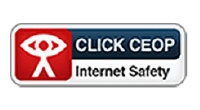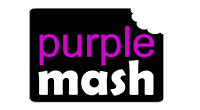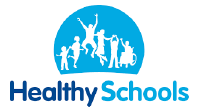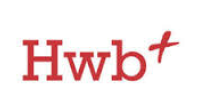Health and Wellbeing
Health and Well-being
A statement defining ‘what matters’ in the context of the AoLE.
Health and well-being encompasses the interdependencies of the physical, psychological, emotional, cultural and social dimensions which enable everyone to participate in life as best they can in an ever changing world.
Ambitious, capable learners can recognise how aspects of their environment, mind and physical state impact on their health and well-being and readiness to learn. They develop resilience, confidence and empathy in response to social, emotional and physical experiences and challenges. They seek new experiences and take ownership over their learning.
Enterprising, creative contributors express and explain ideas, thoughts and emotions. They demonstrate an understanding of how emotions may be experienced and externalised. They understand the importance of safety, learning how to recognise and manage risk and are able to seek help and support, they contribute to their communities. They can use creative methods in engaging with and addressing difficult issues relating to emotions and relationships.
Ethical, informed citizens make choices based on knowledge and values. They understand that choices can impact on the health and well-being of themselves and others. They have an understanding of their rights and have respect for the rights of others. They develop tolerance as a respectful member of society. They value and contribute positively to their physical and social environments. They are able to engage with the wider social and ethical issues connected to Health and Well-being.
Healthy, confident individuals understand how factors such as nutrition, substances and physical activity influence their health and well-being and are developing positive dispositions in respect of these to support informed decisions. They recognise that different environments and experiences impact on and influence their emotion. They are able to seek support and to manage these. They learn to develop positive relationships and recognise that their identity is linked to their health and well-being.
Personal and social education (PSE)
Personal and social education (PSE) forms part of the basic curriculum for all our pupils. The policy and framework for teaching has been updated to incorporate Welsh Assembly Government themes, policies and relevant guidance. Ysgol Maes Hyfryd aims to implementation a broad, balanced, holistic PSE provision based on the PSE framework.
Statutory requirements
Under the United Nations Convention on the Rights of the Child and the Welsh Assembly Government’s overarching strategy document Rights to Action, all children and young people must be provided with an education which develops their personality and talents to the full. The Education Act 2002 further strengthens schools’ duty to safeguard and promote the welfare of all children and young people.
The PSE curriculum fulfils our statutory responsibility to support pupils’ spiritual, moral, cultural, mental and physical development, and prepare children for the opportunities, responsibilities and experiences of life as set out in Section 78 of the Education Act 2002.
PSE
At Ysgol Maes Hyfryd the importance of PSE is recognised as an essential part of the broad and balanced curriculum. Pupils develop skills, knowledge and understanding within PSE lessons as well as through the whole curriculum and the overall ethos of the school. These skills will encourage personal autonomy and form a basis for adult life. This is corroborated in the PSE framework:
“PSE prepares learners to be personally and socially effective by providing learning experiences in which they can develop and apply skills, explore personal attitudes and values, and acquire appropriate knowledge and understanding.”
p4 (DCELLS 2008)
Our Vision
We ensure that every pupil reaches their full potential in the four aspects of our vision and in school life. PSE within Ysgol Maes Hyfryd aims to support and address the four aspects of our vision within a holistic approach and discrete lessons
PSE Aims
• To equip pupils with the knowledge, understanding, skills and strategies required to live healthy, safe, productive, capable, responsible and balanced lives
• To encourage active participation, communication and decision making.
• To develop pupils’ self-esteem and sense of personal responsibility.
• To develop independent living skills, promoting the skills to live safe, healthy lives.
• To prepare pupils for the challenges, choices and responsibilities of work, adult life and opportunities for lifelong learning.
• To develop positive attitudes and behaviour towards school and community participation as well as towards the principles of sustainable development and global citizenship.
• To encourage pupils to be enterprising
• To prepare pupils and support them in making effective transitions, positive lifelong learning opportunities and possible career choices.
• To provide pupils with opportunities to reflect on and clarify their own values and attitudes, and explore those of others around them - promoting self-respect, respect for others and a celebration of diversity.
• To support pupils in building their confidence, resilience and self-esteem: developing a sense of personal responsibility.
• To support pupils in developing an understanding of themselves, empathy and the ability to work with others
• To support pupils to form and maintain good relationships, develop the essential skills for their future opportunities and better enjoy and manage their lives
• To support pupils in identifying and managing risk, making informed choices and understanding what influences their decisions
• To support pupils to recognise, accept and shape their identities, to understand and accommodate difference and change, to manage emotions and to communicate constructively in a variety of settings.
• To support pupils in developing an understanding of themselves, empathy and the ability to work with others
• To support pupils to form and maintain good relationships, develop the essential skills for their future opportunities and better enjoy and manage their lives
A holistic approach to health and wellbeing
The ethos and organisation of Ysgol Maes Hyfryd has a crucial part to play in personal and social development. It comprises all that our school undertakes on a day to day basis; supporting and promoting the personal and social development and well-being of our pupils. It is the responsibility of all staff to support and promote the personal and social development and well-being of pupils.
The ethos of Ysgol Maes Hyfryd ensures all pupils are valued, promoting positive relationships and self esteem. Strong partnerships with parents facilitate effective pastoral care. Positive behaviour management strategies aim to empower pupils to develop self control.
This is a core area of learning for our pupils. All pupils have individual targets as part of their Individual Educational Plan (IEP). These targets encompass:
Skills for independent living eg. self-care; cooking and home skills; use of community facilities and transport.
Personal targets for behaviour e.g. development of prerequisites for learning; positive attitudes to learning; working with others and developing social competence.
The teaching of such individual targets takes place throughout the curriculum and during break times, on an individual basis as well as in group sessions during discrete lessons such as food technology.
We aim to deliver a holistic, inclusive and adaptable curriculum, taking into account and valuing diversity and difference, the curriculum will evolve to meet changing biological, social, cultural and technological issues and knowledge as it arises. We aim to attune to our pupils’ evolving capacities to see themselves and each other in what they learn and experience (e.g. with peers, family, community, real-world issues etc.).
School Council provides opportunities to develop the skills for participation in decision making.
Positive links with the community and the appropriate use of visitors and visits encourage pupils to develop the skills and understanding required as active responsible citizens.
Work experience programmes and mini enterprise activities promote an understanding of the world of work and business.
Weekly assemblies and daily reflection address the curriculum and provides opportunities for social and moral education
Because of the very nature of the pupils at Ysgol Maes Hyfryd much informal personal education takes place during personal care times. However, attention is paid to the physical and emotional maturity of the pupils as they progress through the school and more formal lessons may take place on an individual or group basis. As pupils may be drawn from different age groupings, staff will be kept aware of the programme as it progresses, so that they are able to provide support to the pupils when necessary.
In addition to the ‘hidden curriculum’ within the school, pupils may receive stand-alone education sessions delivered by the school nurse, outside agencies such as project Jiwsi, local police and the class teachers.
Discreet PSE lessons
Ysgol Maes Hyfryd has a very extensive curriculum that provides entitlement for all through its commitment to equality of opportunity. The components of the National Curriculum are designed to be accessible by all pupils, the school delivers its curriculum through the informal and semi-formal curriculum (sensory department) up to National Curriculum Level. Ysgol Maes Hyfryd looks to provide integration opportunities into Flint High and other schools as necessary when appropriate to support the needs of our pupils.
As a school community, we offer learning experiences which:
• Contain accurate and relevant knowledge
• Provide ‘quality not quantity’
• Use pupil feedback (e.g. School Council and pupil questionnaires) and local data (e.g. Public Health, SHRN) to prioritise the focus of our learning
• Provide links (e.g. the health risks of using drugs with the awareness of peer pressure)
• Respect pupils’ prior learning, experience, needs and readiness
• Provide opportunities to turn knowledge into personal understanding
• Provide opportunities to; ‘know about...’ ‘know how to...’ ‘be able to...’
• Provide opportunities to explore, clarify and challenge their own and others’ values, attitudes, beliefs, rights and responsibilities
• Provide the skills, language and strategies they need to live healthy, safe, fulfilling, responsible and balanced lives
• Is inclusive and acknowledges and accommodates the diversity within our school in terms of gender, religion, language, race, social background, culture, appearance, family set-up, ALN, ability or disability
Across all Departments and Key Stages, pupils will be supported with developing the following skills:
• Communication, including how to manage changing relationships and emotions
• Recognising and assessing potential risks
• Assertiveness
• Seeking help and support when required
• Informed decision-making
• Self-respect and empathy for others
• Recognising and maximising a healthy lifestyle
• Managing conflict
• Discussion and group work
Sensory department curriculum
The sensory department spans the full age range of the school, with specific classes broadly catering for pupils with profound and multiple learning difficulties (PMLD) and pupils with complex communication difficulties, including those with autism. The pupils in the sensory department have either profound or severe learning difficulties with additional needs, such as sensory and / or mobility impairment or require additional support for behavioural or medical needs. All pupils in the department follow personalised learning programmes to meet their academic and communication needs. In addition to this, each pupil accesses relevant therapies throughout the week.
Most pupils placed within the sensory department are functioning at the early stages of development. It is widely acknowledged in that pupils who are beginning to take the first steps in learning do not learn through a subject down approach. Rather, they require a personalised curriculum that is carefully structured to take account of their communicative and cognitive level, sensory functioning and motivations. Routes for Learning used at Ysgol Maes Hyfryd supports a personal approach to learning. In addition to following the holistic PSE approach. Pupils in the sensory department will undertake personalised programmes to develop their communication and cognitive skills based on priority objectives from their statement of special educational needs. Time is spent developing self help skills through personal care routines, mobility skills, body awareness and self regulation. Programmes of work for the curriculum domains are delivered through a termly theme. More able pupils within the department will develop their academic skills through target related work linked to subject areas relevant to the pupils needs. The curriculum is content free, flexible and based on the individual needs of the pupils.
The informal pathway
Our PMLD pupils follow an informal pathway. This involves five core curriculum domains which is linked to the Donaldson curriculum review and includes DCF. These domains include:
• My Communication
• My Thinking
• Personal care and independence
• My body / physical skills
• Sensory responses
The semi-formal pathway.
Pupils with SLD in the sensory department and in one class in key stage 3 and key stage 5 follow a semi-formal pathway. This involves six curriculum domains and again is linked to the Donaldson review and DCF. These domains include
• My Communication
• My Thinking
• Personal care and independence
• My body and sensory responses
• How my world works
• My creativity
The formal curriculum – Key stage 3,4 and 5
Our programme of study runs through 5 core themes identified by the WAG PSE programme of study and a specific relationships module
• Health and wellbeing (Health matters),
• Relationships
• Active Citizenship (attitudes and values)
• Preparing for Lifelong learning (community participation)
• Moral and Spiritual Development (attitudes and values – inc Curriculum Cymreig)
• Sustainable Development and Global Citizenship.
This programme looks to develop discrete knowledge and build upon the pupils cross curricular key skills.
It is taught in accordance with pupils’ readiness and reflects the universal needs shared by all children and young people as well as the specific needs of Ysgol Maes Hyfryd pupils. Whilst a long term plan is provided for each key stage staff may decide that due to the nature of the pupils a suggested area for development is too advanced or not advanced enough or use the session to address a specific need that has arisen within the class. The curriculum is a working document that is continually being revisited in line with local and national priorities.
Welsh Language Impact
Wherever possible and appropriate, we will use the Welsh language as a natural part of our curriculum delivery










